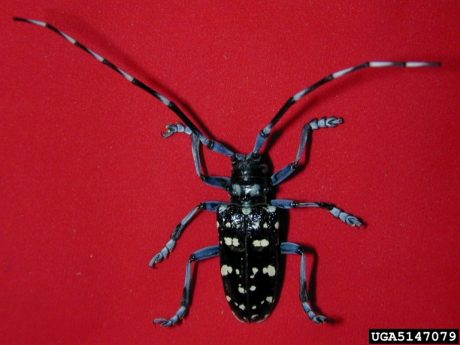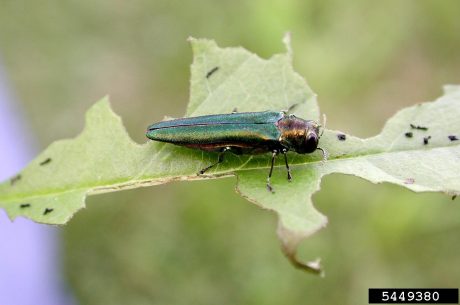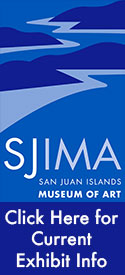August is National Tree Check Month: Have You Seen These Invasive Pests?
Posted August 8, 2017 at 5:30 am by Peggy Sue McRae
Washington State would like your help checking for invasive wood-boring insects. Here is the message from Olympia…

Citrus Longhorn Beetle – Photo courtesy Plant Protection Service
The Washington Invasive Species Council and a consortium of agencies and universities are asking residents to check trees and swimming pools in their yards for harmful bugs as part of the national Tree Check Month in August.
August is the peak time of year to find invasive bugs like citrus longhorned beetles, emerald ash borers and other aggressive wood-boring insects. Trees near your home and in your neighborhood, the “urban forest,” are as susceptible as trees in rural and wild forests.
“Invasive insects can destroy Washington’s forests and have a large economic impact,” said Justin Bush, executive coordinator of the Washington Invasive Species Council. “A few minutes of your time could save the state millions of dollars and protect more than 22 million acres of forests that are at risk from invasive insects and diseases.”
The Washington Invasive Species Council, Washington State Department of Agriculture, Washington State Department of Natural Resources and Washington State University Extension are asking residents to take 10 minutes to go outside and inspect their trees. Invasive wood boring insects typically emerge from trees in August.
The experts also suggest that all pool owners check their pool skimmers and filters for invasive bugs. Emerging adult insects often end up as debris collected in pool filters. On the East Coast, pool owners detected invasive beetles in pools far before they were found in conventional pest survey traps.
Residents who see any invasive insects or signs of them, should take photographs and report the find immediately at www.invasivespecies.wa.gov/report.shtml, where they can access the reporting form or download the free WA Invasives mobile app. If the insect can be captured or collected, each county has a Washington State University Extension Office and Master Gardener Program that can help identify suspect insects.
First indications of invasive insect damage to trees include sudden dieback or death among trees that are otherwise vigorous and healthy. If residents see this, they should investigate further and look for sawdust, exit holes or actual beetles. They might help find one of these invasive species:
The citrus longhorned beetle, a close relative of the infamous invasive Asian longhorned beetle is a large shiny black beetle with white spots. At this time of year, adult beetles emerge from trees, leaving large, circular exit holes about 5/8 inch in diameter. The beetle can feed on and kill a variety of hardwood trees including apple, maples, oaks, willows and poplars. Washington has a number of look-alike native beetles and it takes a trained eye to distinguish them, so residents are asked to provide any suspect beetles to one of the agencies mentioned above. In 2001 this species was detected in Tukwila and was successfully eradicated in a cooperative effort between the Washington State Department of Agriculture and U.S. Department of Agriculture.
The emerald ash borer is a shiny, half-inch long, metallic green beetle. Adults begin flying in June and will continue through August as they emerge from ash trees, their primary host. The exit holes in the tree’s trunk are about a quarter-inch wide and have a distinctive D-shape. This species has been moving westward as campers move firewood far from where they bought it and recently was discovered in Boulder, Colorado.

Emerald Ash Borer – Photo Debbie Miller
For more information about invasive species, and ways to keep them from spreading, visit www.invasivespecies.wa.gov and http://wise.wa.gov.
You can support the San Juan Update by doing business with our loyal advertisers, and by making a one-time contribution or a recurring donation.
Categories: Around Here










No comments yet. Be the first!
By submitting a comment you grant the San Juan Update a perpetual license to reproduce your words and name/web site in attribution. Inappropriate, irrelevant and contentious comments may not be published at an admin's discretion. Your email is used for verification purposes only, it will never be shared.